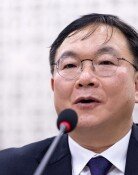JPMorgans recruiting children of power elites
JPMorgans recruiting children of power elites
Posted November. 05, 2013 08:03,
JPMorgan Chase, the largest investment bank in the U.S., introduced a special Sons and Daughters recruitment program in 2006. With Chinese power elite scrambling to get their children employed by JPMorgan, the company created a track to secretively hire scions of power elites, saying it is profitable business. The recruitment process was reportedly not strict and job interviews were mere formality. There are 250 employees who were hired through such a process in Asia alone, with most of them being children of Chinese power elites. The U.S. Securities and Exchange Commission and prosecutors are investigating whether special favor was given to children of power elite in Singapore, India and Korea as well.
JPMorgan gained massive benefits in return for special recruitment. In 2010 when it hired Tang Xiaoning, the son of Tang Shuangning, the chairman of Chinas state-run Everbright Group, JPMorgan became the advisory company in listing Everbright Bank in the following year. In 2012 when an affiliate of Everbright Bank issued shares worth 162 million U.S. dollars overseas, the U.S. investment bank was named the lead manager. When a subsidiary of Chinas state-run food company Cofco issued shares worth 580 million dollars in 2012, it served as the investment advisory firm. This came soon after the investment bank hired the daughter of Cofco chairman Ning Gaoning. When JPMorgans Hong Kong affiliate hired the daughter of former ranking official with Chinas railroad ministry, it became the lead manager for initial public offering of Chinas state rail company.
Since its introduction in 1977, the overseas corruption prevention act clearly provides that U.S. companies shall not bribe officials of foreign governments to achieve illicit gains in overseas business. In this regard, JPMorgan will likely face penalty. The company damaged the value of equal opportunity and fairness, something that the U.S. gives priority, through the bribes of special recruitment.
It is unjust that a fathers wealth and power determine his childrens employment. It is natural to make one angry just to think of a situation where an ineligible young man deprives a capable person of job opportunity. However, if two candidates have similar capability, and if the power of a candidates father is instrumental to business success of the employer, the situation may change altogether. As such, it is not uncommon to hear the allegation that children of families with power and wealth land jobs behind the scene at consulting firms or foreign financial institutions where connection is considered capability and performance.
Editorial writer Choi Yeong-hae (yhchoi65@donga.com)



![‘노인 냄새’ 씻으면 없어질까?…“목욕보다 식단이 더 중요”[노화설계]](https://dimg.donga.com/c/138/175/90/1/wps/NEWS/IMAGE/2026/02/27/133434557.3.jpg)



